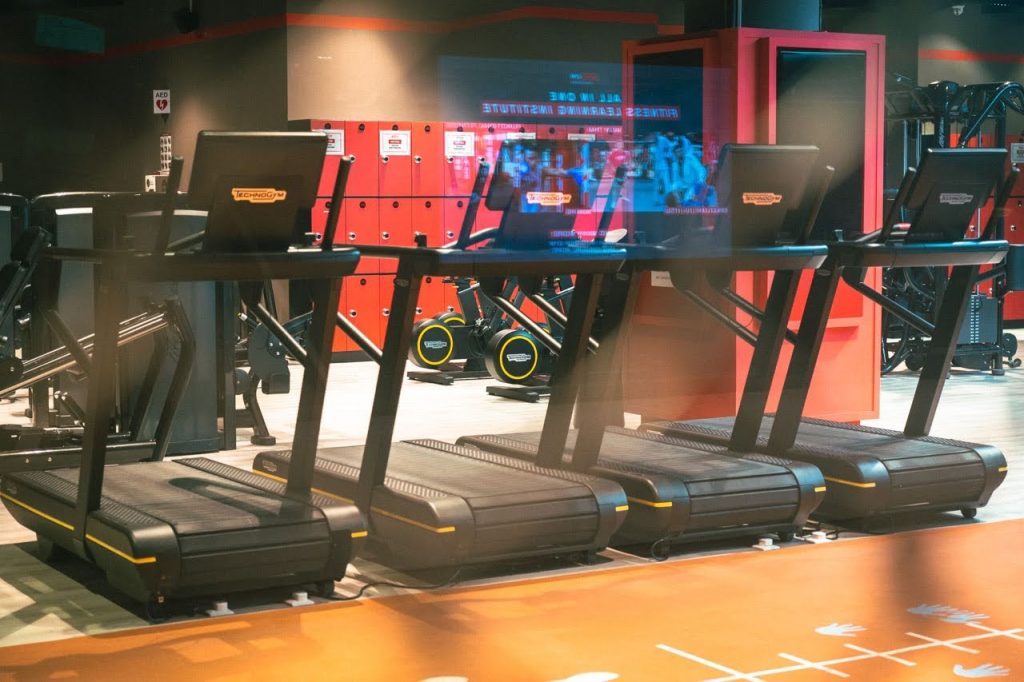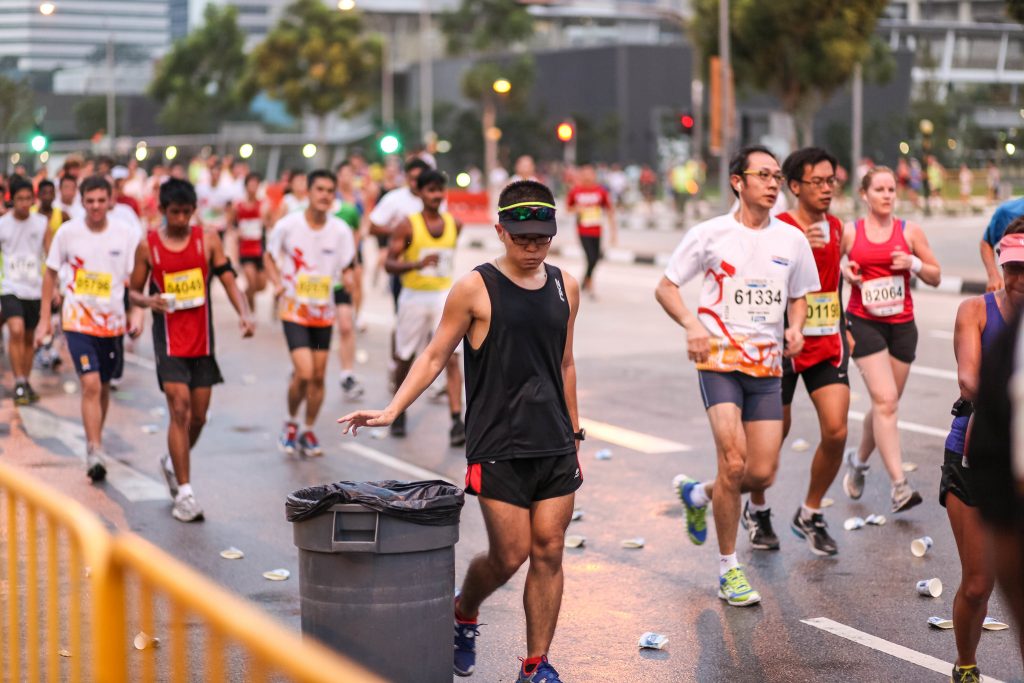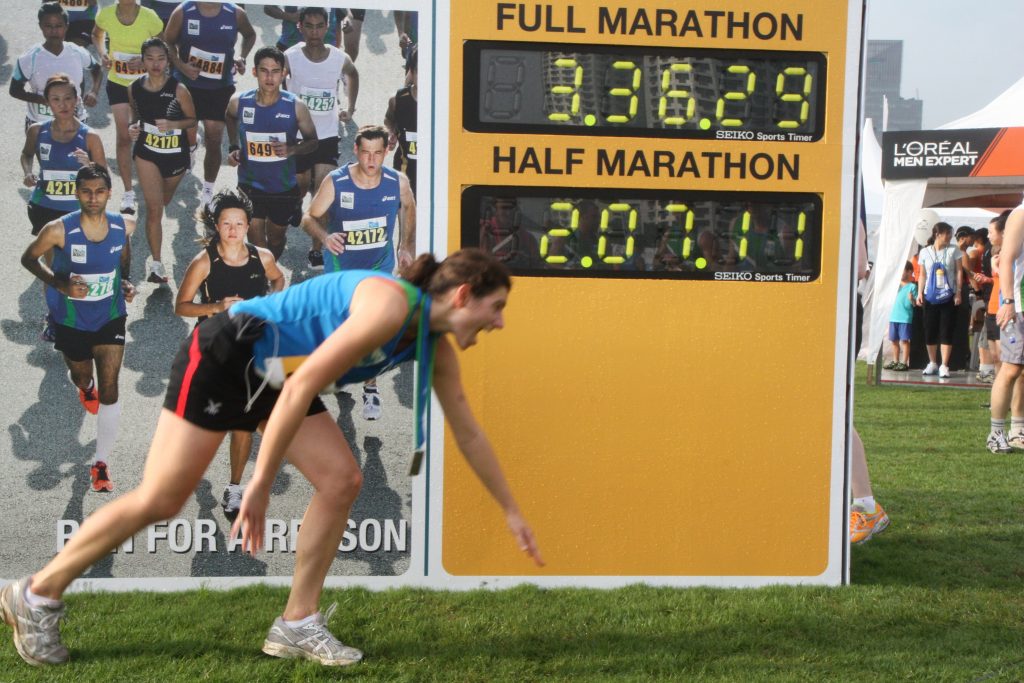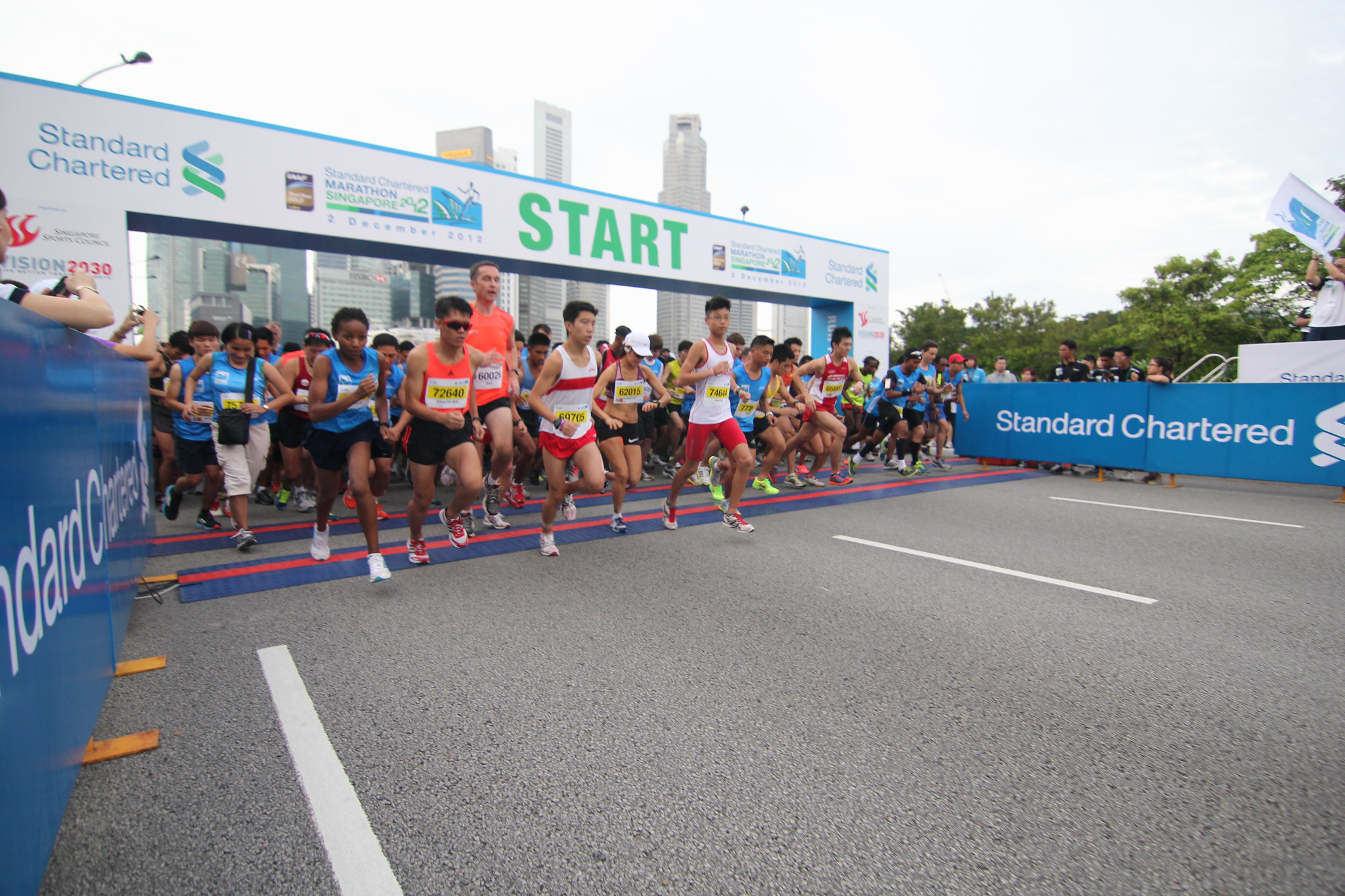Top image: RunSociety / Facebook
Paying to punish your body by running 42 kilometres seems absurd. Yet somehow, marathons have turned into a rite of passage for thirtysomethings searching for meaning.
It’s bizarre. At some point in adulthood, you might find yourself wandering into Royal Sporting House, scrutinising running shoes like they hold the secret to a new, better you. Just the right pair to put some spring back in your cushioned step.
Back in school, we’d begrudgingly run 2.4 KM loops only because we had to. Running wasn’t about self-actualisation back then—it was just another obstacle between us and recess. So why, now that I’m older, with creaky knees and an uncooperative metabolism, would I voluntarily lace up my running shoes once again?
In my early twenties, I was unwillingly pulled into the university track team. I sprinted, cramped, and spent too much time with resistance bands. A decade later, all that remains is a collection of bad posture, lower back aches, and a shocking lack of motivation.

At 31, my fitness routine is limited to thumb workouts, swiping Instagram reels—where everyone I know seems to be sweating it out for Hyrox, bouldering after work, or spending weekends at F45. Meanwhile, I’m in bed, doomscrolling to the soundtrack of Taylor Swift.
The drip feed of Lululemon-flavoured fitness content does have an effect, though. Victory poses in finisher singlets, shiny medals held up high, exhausted but overjoyed smiles… Maybe I could start running again, I think. Maybe I should. Perhaps even sign up for the Standard Chartered Marathon.
Because if I don’t, I’ll feel like the millennial whose life has gone off-track.
Galloping Towards Validation
I get the appeal of running; I really do. There’s something magnetic about the promise of a clear, crisp goal. It’s an attainable finish line when everything else—careers, relationships, the general state of the world—feels precarious after crossing the big three-zero.

The rhythm of a steady run, the mental clarity, and the physical release of endorphins keep out the daily noise. No one’s dictating your pace. You run against yourself, not the world. You don’t need to be the fastest; you just need to finish.
32-year-old Julian runs around his office after work every day, and occasionally through his neighbourhood. Running began as a free way to get his fitness up. Over time, it’s become a ritual of reassurance.
After years of making running a part of his routine, Julian decided to take up the challenge and complete a half marathon.
“Signing up for my first half marathon is a way for me to prove my running skills, similar to how we need a certificate to justify having a good education,” he remarks, laughing.
‘Prove it’ indeed—but who are we proving it to really after we end up wheezing and barely standing after a run?
While running begins as a personal challenge, it’s almost impossible to separate it from the ecosystem of flex culture that dominates social media. You can’t run away from seeing those little squiggles and dots on Strava screenshots plastered all over your friends’ Instagram stories like they’re trying to map out their journey out of a quarter-life crisis.
The internal pressure to chronicle every kilometre can turn even the purest pursuit into a public theatre of achievement. Post-marathon medal photos are mementoes, yes, but they’re also social currency for precious validation.
To be clear, it’s not a bad thing to post those things—you’ve earned it, period. Documenting achievements is empowering, a way to cement your effort. But it’s worth asking: when the track extends beyond the finish line, are we sharing to celebrate or to keep up with an unspoken race for relevance?
Maybe it’s not about relevance, but resonance. Sharing a marathon finish offers an invitation for others to see themselves in your achievement; to reflect on untapped potential.

Yilin, a close friend of mine, recently completed a marathon in Sydney on her birthday. She posted about it on Instagram, but her caption veered away from the usual fitness platitudes. It was long and introspective—a story documenting how far she’s come since her first 10-kilometre run at the age of 14.
“It’s hard,” she tells me. “[Marathon running] is not a pretty journey.”
“But at 32, it’s the ‘youngest’ I’ve ever been. Marathons remind me that I should say ‘Yes’ to experiences more often, no matter how old I may be.”
As I read her musings, I can’t help but admit: I miss how my body felt when I trained every day. I miss the raring-to-go attitude I had when I was younger. Most importantly, I miss how at peace I felt.
Here’s a question to ponder: is this drive rooted in genuine care for our health or a desperate need to ‘fix’ ourselves? When we scroll past sweaty, triumphant posts from our fitter friends on social media, why do some of us immediately feel like meat bags of lumpy flesh and cholesterol?
In an era where everything yells ‘wellness’ or ‘growth’, standing still feels like admitting failure. And that’s where the social pressure to ‘fix’ ourselves with marathons, supplements or gym routines comes from—we don’t want to be left behind in the race of life.
But perhaps true growth lies not in constantly chasing the next finish line but in learning to embrace ourselves without needing to prove our worth to anyone.
Running From or Running To?

In a way, marathons are a metaphor for the millennial experience. Beneath the muscle cramps lies a possible truth: We’re a generation navigating the off-roads of uncertainty by latching onto clear, measurable goals.
We run to prove something—to ourselves, to others, to a world that keeps moving the finish line. We run to feel alive, to stave off the creeping fear that we’re not achieving enough, fast enough.
Do I care deeply enough to determine my self-worth by signing up for multiple upcoming marathons? Probably not right now, given the possible perils.
But I might, eventually. Because marathons can offer perspective. The 42 KM journey forces us to confront our limitations, push through discomfort, and embrace imperfection.
It’s a reminder that success doesn’t always mean being first. It means showing up, even when it hurts.
Maybe I’ll run just far enough to prove I can. Maybe I won’t run at all and let others chase medals while I chase a different kind of meaning.
So why do millennials flock to marathons in the first place? It could be a fleeting escape; it could be a dash for purpose; it could even mean earning the right to humblebrag. But beyond the milestones and medals, maybe the real allure is learning to outrun the version of ourselves that says, “We can’t”.






